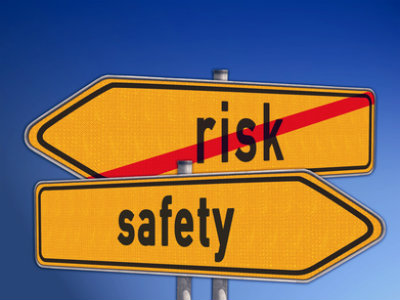
Sexual offences against children rose by more than a third in the year 2013-14, police figures have shown.
Published today, freedom of information requests from the NSPCC to police forces in England and Wales have shown the number of recorded sexual offences against children rose to 31,238 in 2013-14.
This is the equivalent of 85 offences, such as rape, sexual assault and grooming, being reported to police every day in 2013/14.
‘Disturbing’ figures
More than a third (8,282) of victims were younger than 11, the figures showed, while the majority were aged between 12 and 16.
All 43 police forces across England and Wales responded to the freedom of information request for the year 2013-14, while 41 responded for the year 2012-13 when 22,654 offences were recorded.
NSPCC chief executive Peter Wanless called the figures “disturbing” and said it was “time to throw down the gauntlet to government” to ensure all victims of sexual abuse get specialist treatment.
He also warned the figures were only a fraction of the true number of victims because, “some endure an agonising wait of many years before telling anyone – and others never reveal what has happened to them”.
“By the end of this current parliament there should be no children living in the shadow of abuse,” Wanless said.
Concern over sexual exploitation
The data was released on the same day that Sir Michael Wilshaw, Ofsted’s chief inspector, expressed concerns over how agencies are dealing with child sexual exploitation.
He said over half of local authorities are failing to do basic statutory duties like carrying out return interviews for missing children, considered to be at the highest risk of sexual exploitation.
Return interviews that are conducted are often poorly recorded, while the findings are not collated and analysed, he said. He warned this undermines the capacity of local partners to take effective preventative action against the abuse.
Missing children at highest risk
“More must be done to identify and protect vulnerable children who are at risk of being sexually exploited,” Wilshaw said.
“I remain concerned, a full two years after Ofsted published a detailed report into missing children – among some of the most vulnerable to exploitation – that this issue has not been given the priority it deserves by some local authorities and partners.
It is particularly worrying that many councils cannot provide Ofsted with data about missing children in their area, he added.
He called on the police to help ensure the inspectorate has the information to target inspections in those areas where children are most at risk of sexual exploitation.


 Bournemouth, Christchurch and Poole
Bournemouth, Christchurch and Poole  Hampshire County Council
Hampshire County Council  Lincolnshire County Council
Lincolnshire County Council  Norfolk County Council
Norfolk County Council  Northamptonshire Children’s Trust
Northamptonshire Children’s Trust  South Gloucestershire Council
South Gloucestershire Council  Wiltshire Council
Wiltshire Council  Wokingham Borough Council
Wokingham Borough Council  Children and young people with SEND are ‘valued and prioritised’ in Wiltshire, find inspectors
Children and young people with SEND are ‘valued and prioritised’ in Wiltshire, find inspectors  How specialist refugee teams benefit young people and social workers
How specialist refugee teams benefit young people and social workers  Podcast: returning to social work after becoming a first-time parent
Podcast: returning to social work after becoming a first-time parent  Podcast: would you work for an inadequate-rated service?
Podcast: would you work for an inadequate-rated service?  Family help: one local authority’s experience of the model
Family help: one local authority’s experience of the model  Workforce Insights – showcasing a selection of the sector’s top recruiters
Workforce Insights – showcasing a selection of the sector’s top recruiters 

 Facebook
Facebook X
X LinkedIn
LinkedIn Instagram
Instagram
Comments are closed.